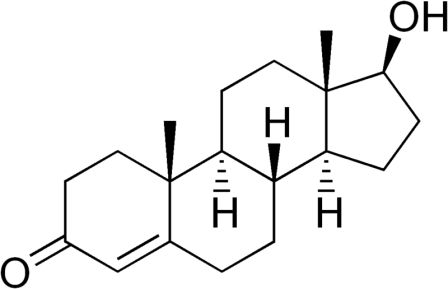Research shows testosterone makes some men aggressive
New research out of Nipissing University shows that testosterone can quickly increase aggressive behaviour when administered to men with dominant and/or impulsive personality traits.
The research emerges from Dr. Justin Carré’s Laboratory of Social Neuroendocrinology at Nipissing University and is published in the journal Biological Psychiatry. You can find the entire published report, titled Exogenous Testosterone Rapidly Increases Aggressive Behaviour in Dominant and Impulsive Men, here.
Dr. Carré, assistant professor of psychology, is studying how testosterone impacts human competitiveness and aggressive behaviour.
While traditional wisdom suggests that testosterone promotes aggressive behaviour, previous correlational research on the subject has been inconsistent. Dr. Carré’s study found that testosterone on its own did not promote aggressive behaviour; it did, however, strongly increase aggression when administered to men with dominant and/or impulsive personality traits. The results of the study highlight the importance of considering personality traits when examining the effects of testosterone on human social behaviour.
“As testosterone replacement therapy grows in popularity to treat symptoms linked to low testosterone, including erectile dysfunction, fatigue, low sex drive and depression, it’s vital that we understand the full range of its potential impact on men and the people around them,” said Dr. Carré. “My lab is working to contribute a better understanding of the basic mechanisms through which testosterone contributes to human social behaviour.”
To conduct the research, Carré and his team administered either testosterone or a placebo to 121 research subjects. Subjects were then asked to play a validated decision making game that measures aggressive behaviour in response to social provocation. Self-report measures were obtained to assess variation in personality traits such as dominance and impulsivity.
Currently, the lab is focused on examining the psychological mechanisms through which testosterone increases aggressive behaviour in dominant and impulsive men. Future research will be needed to examine the effects of more long-term testosterone replacement on psychological and behavioural outcomes such as aggression and risk-taking. Finally, the extent to which testosterone rapidly modulates aggressive behaviour in dominant/impulsive women will require further study.
This research was conducted in collaboration with Dr. Shawn Geniole (Brock University), Triana Ortiz (Nipissing University), Brian Bird (Laurentian University), Amber Videto (Nipissing University) and Dr. Pierre Bonin (Northern Ontario School of Medicine).
The study was funded by a grant from the Natural Sciences and Engineering Research Council of Canada.

